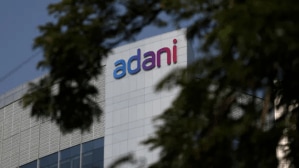Banks lose more when US firms default, says S&P
Banks last year had more difficulty than ever getting their money back when corporate clients defaulted, a leading credit rating agency said...

Banks last year had more difficulty than ever getting their money back when corporate clients defaulted, a leading credit rating agency said on Monday. Standard & Poor’s said banks recovered just 72 percent of what they loaned when defaulting companies emerged from bankruptcy, down from 73.6 per cent in 2001.
The ‘recovery rate’ was the lowest since S&P Began tracking bond and loan recoveries in 1988. The rate averaged 81.6 per cent between 1988 and 2002.
|
Ex-SEC accounting chiefs for hard regulatory line |
S&P said the rate is unlikely to improve much in 2003, and may get worse. Last year was a record for defaults, and many issuers are forced to sell assets at distressed prices. Bonds from such issuers as Global Crossing Ltd and Kmart Corp now trade for pennies on the dollar.
“Bond trading prices are the only way to gauge possible recovery rates, though they are imperfect,” said Roger Bos, an associate in S&P’S risk solutions unit. “Those prices are telling us not to expect much improvement this year.”
S&P said the recovery rate would have been even lower had banks not lent less to shakier borrowers and demanded stricter credit terms as the economy remained weak. This left more creditors, such as bond holders, lower in the pecking order in case of default.
“Banks are in the driver’s seat because companies want money, and it is difficult to raise capital in this environment,” said Alok Makhija, of Debt Traders Inc. Banks want sufficient security for what they lend.”
Holders of defaulted senior unsecured bonds, backed only by an issuer’s integrity and promise to pay, also fared poorly last year. S&P said those bond holders recovered just 28 per cent of their investments, up from a record low of 22.1 per cent in 2001, but below the 46 per cent average between 1988 and 2002.
Recovery rates have fallen in part because the market for many assets, even for companies not in default, is distressed. For example, Global Crossing, the telecommunications operator with estimated assets of $22 billion, last August agreed to sell a 61.5 per cent stake to Hong Kong’s Hutchison Whampoa Ltd and Singapore Technologies Telemedia Pte—for a $250 million cash infusion.
Also, following Enron Corp’s collapse, some merchant energy companies were forced to sell assets cheaply to raise cash, as their credit ratings and share prices fell. (Reuters)






- 01
- 02
- 03
- 04
- 05

























